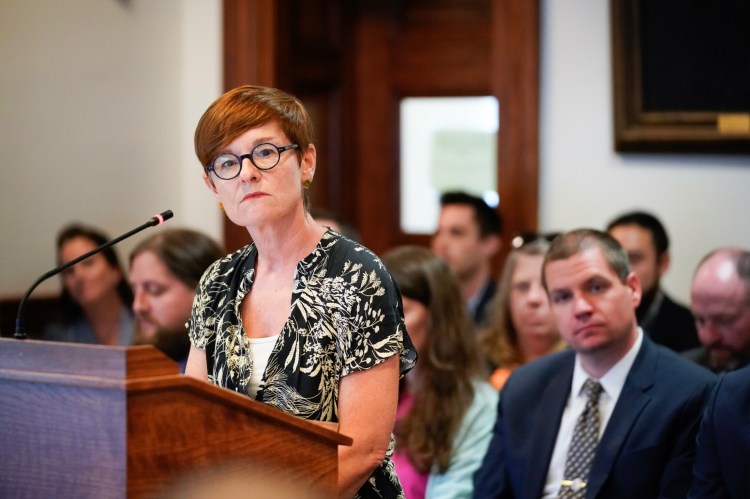AUGUSTA — The state’s biggest marijuana company, Wellness Connection, is threatening to sue Maine if it doesn’t change proposed residency requirements that would shut it out of the state’s emerging recreational marijuana market.
“We’re very concerned that the residency requirement in current form would provide a serious obstacle to Wellness’ entry into the adult-use market,” attorney Dan Walker said during testimony to the Veterans and Legal Affairs Committee on Monday.
The hearing was likely to be the last on the Maine Office of Marijuana Policy’s proposed adult-use cannabis regulations. The committee will review the department’s revised rules as early as Tuesday in hopes of sending them to the full Legislature for a vote before it is scheduled to recess for the summer on June 19.
In the interest of launching the state’s long-awaited recreational marijuana market, Wellness Connection was willing to overlook the unconstitutionality of making the first wave of marijuana business licenses available to Maine residents only, Walker said. Such protectionism is a violation of interstate commerce laws, he said.
But the proposed rules go even further and seem to prevent out-of-state investment and partnerships, too. That is more than Wellness Connection or its business partner can accept, Walker said. Wellness is a nonprofit, but it maintains financial ties to its initial out-of-state investor, which is now owned by Acreage Holdings.
“Regrettably, if the provisional rules are not sufficiently changed by the Legislature, my client, or one of our partners, will be forced to sue the state on the grounds that the residency requirements in the (underlying) statutes are unconstitutional,” Walker said.
Wellness said it doesn’t want to sue, but would have no choice if the rules shut it out of a market that it has been planning to enter for years, Walker said. The proposed recreational marijuana regulations should not prevent good corporate citizens such as Wellness from participating in the new market, he said.
But Kelly Mourmouras, a Biddeford medical marijuana caregiver, urged the committee to stand behind the Office of Marijuana Policy’s attempts to keep out-of-state interests from gobbling up the state’s marijuana market, and keep whatever profits are to be made from it in the hands of Mainers.
“We want to give Maine residents a chance before the big boys come in,” Mourmouras said.
Mourmouras urged them to resist being intimidated by lawsuit threats from Acreage, which can claim political powerhouses such as (former Speaker of the House) John Boehner and (former Massachusetts Gov.) William Weld among its board members and directors.
The hearing drew about two dozen people, mostly lobbyists, to the State House on Monday.
The details of who can own or control how much of a Maine marijuana business was the top concern of most speakers, but others also sought freedom for towns to set operating hours for cannabis businesses and spoke against rules allowing police searches of marijuana businesses without probable cause.
The Office of Marijuana Policy, created just four months ago, submitted its proposed regulations to the state last week, transferring control of the 31-month adult-use legalization process back to lawmakers in hopes of launching the new market by the end of this year.
The Office of Marijuana Policy scaled back packaging requirements for marijuana products after the industry complained at last month’s public hearing that they would add undue costs to doing business and generate plastic waste at a time when most of the country is trying to cut back on packaging and environmental impacts.
In addition, under the new proposed rules, testing facilities may now be located next to other marijuana businesses, provided they have separate entrances accessible from public rights of way. Originally, the Office of Marijuana Policy had wanted to keep testing labs far away from other marijuana businesses to ensure their neutrality.
Send questions/comments to the editors.




Comments are no longer available on this story